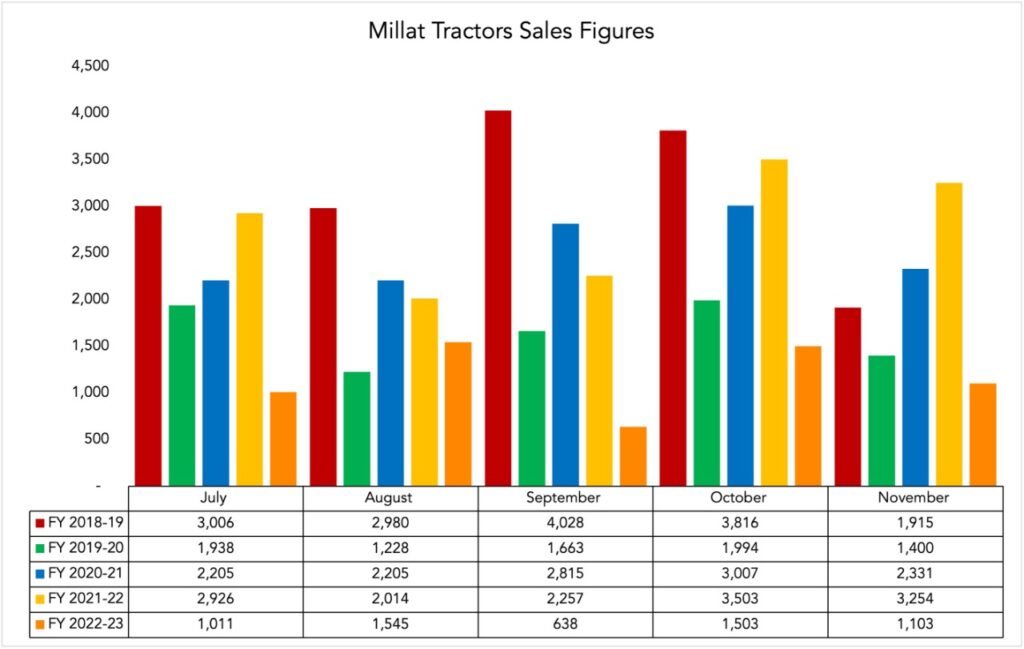LAHORE: Millat Tractors notified the Pakistan Stock Exchange (PSX) that it will, henceforth be observing a four day work with Fridays being declared non-production days. This decision will be in perpetuity, until the company decides otherwise.
The company will implement this decision from December 16. It has attributed the decision to the decline in demand for tractors. Raheel Asghar, CEO Millat Tractors, reaffirmed the explanation given in the circular as the main reason for the decision stating to Profit that “The demand of tractors has reduced to the point that we can no longer produce for the whole week.”
Millat Tractors has seen the worst start to a fiscal year in the past five years. Five month sales, based on the data provided by the Pakistan Automotive Manufacturers Association, currently stand at 5,800 units. This is a 58% year-on-year decrease from the 13,954 units sold over the same period last year.

In an earlier conversation, Asghar told Profit, “We (Millat Tractors) have seen a reduction, and so have our competitor (Al-Ghazi). There are a number of factors affecting the market. The most evident one is the flash floods of 2022 that rampaged across Sindh, Balochistan, and lower Punjab and directly hit the purchasing power of farmers. Other than that, the government had previously exempt tractors from the sales tax. We were able to obtain refunds from the government for our input costs. We will not receive this refund now, and subsequently we had to increase our prices to cater to this”
























